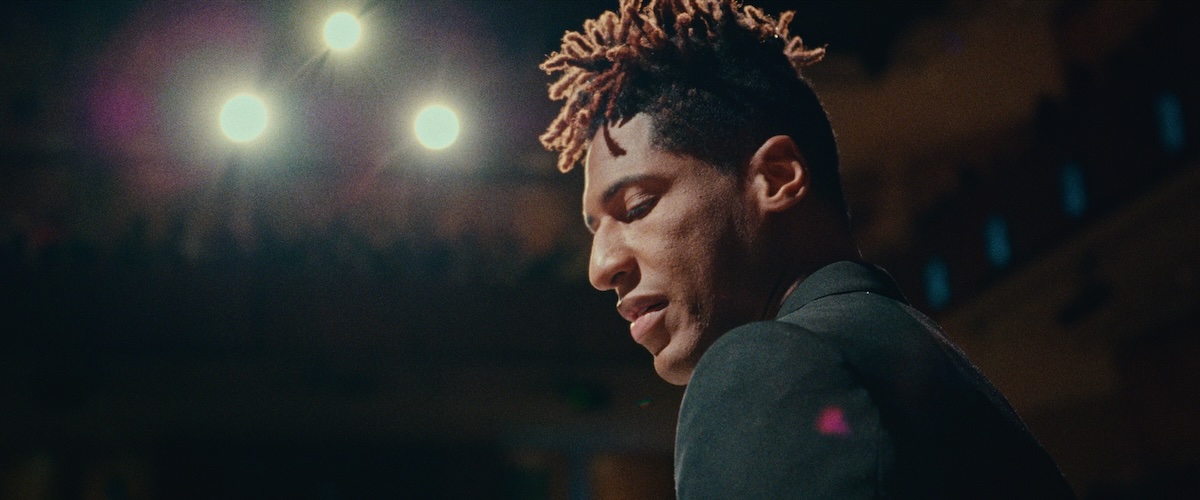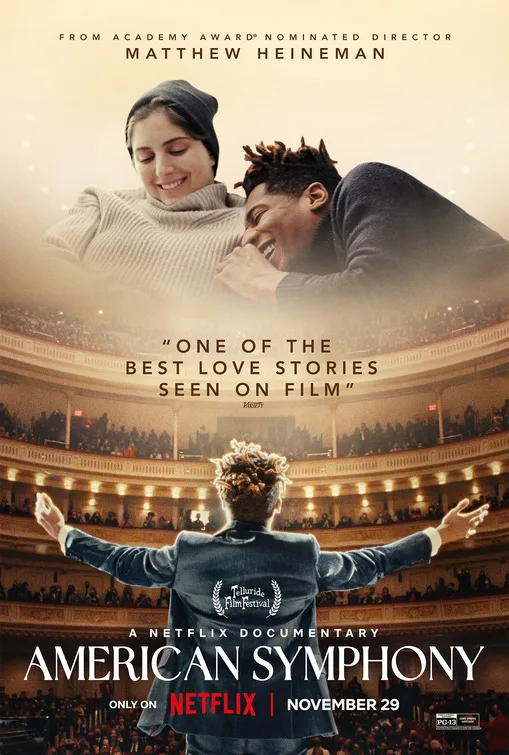Roughly halfway through Matthew Heineman’s moving “American Symphony,” there’s a moment that is truly transcendent. What has been an almost overly hyper-cut and active film literally comes to a halt. Multi-talented artist Jon Batiste is on stage, where he says, “I want to dedicate this last one to Suleika.” And he pauses. For a very long time. (It’s actually the image above.) You can see the emotion come over his face, yet I swear you can also see him harness that emotion before he channels it through his hands and into his piano. He keeps his eyes closed as he plays as if he’s further trying to push his feelings into his art. It’s quite literally a breathtaking scene and the core of what this entire movie is about: How art is the only way we can truly process that human emotion that can’t be expressed in words.
The director of “Cartel Land” and “Retrograde” hung out with Stephen Colbert’s band leader and “Soul” Oscar winner Batiste in early 2022 when his life was a case study in extremes. On the same day that he found out he was nominated for 11 Grammy Awards, including Album of the Year, he learned that his partner Suleika Jaouad’s dormant cancer had returned. Amid all this, Batiste was tackling his greatest artistic endeavor, “American Symphony,” a musical project designed to incorporate generations of music, focusing more on the contributions of people of color than the word symphony has historically been allowed to do. Planning a massive show at Carnegie Hall is stressful; doing it while watching the most important person in your life suffer through chemotherapy is almost unfathomable.
And the truth is it’s still kind of unfathomable after watching “American Symphony.” Despite more than enough positive messaging and moving material to justify a look on Netflix, there’s an increasing sense of guardedness as Batiste and Jaouad’s story progresses into its more intense chapters. We don’t really get a full grip on the artistic process of the creation of the symphony or the fear that comes with fighting cancer. Oh, they’re there, but it’s often in sound bites of voiceover or quick glimpses of intimate moments. Heineman is a very smart filmmaker, so I have to believe that the sense that we’re only being allowed so far into this couple’s life together is on the part of the subjects.
There’s a sense of performance in many of the scenes with Batiste that’s made even more prominent when it falls away. I’d be lying if I didn’t admit to being moved by Batiste’s overall worldview about art and expression that he so often expresses, but there are quiet moments between him and Jaouad that give the film its true emotional foundation. I wanted a bit more of that observation—a bit more of those times when the emotion bubbled up in Batiste, and there wasn’t a piano around to channel it through—although perhaps there’s something pure about the sense that the most emotionally truthful scene in the film is the one in which Batiste is alone at a piano.
In the end, one of the most powerful aspects of “American Symphony”—another subtext that could have been explored even more directly—is embedded in something that Suleika says after the duality of Jon’s most success as an artist exists in the same space as the return of her cancer: “I honestly don’t know how to hold such extremes.” It feels like the pandemic era led to a lot of extremes as moments of joy co-existed with such widespread tragedy. I know I personally have struggled with depression brought on by the collision of some of the most essential moments of my life—mostly in the growth of my wonderful children—and losing some of the most important people to me over the last several years.
But that’s life, right? Heineman, Batiste, and Jaouad understand that we all hold those extremes, especially lately, and have made a film that really does prove Suleika’s statement untrue. She does know how to hold those extremes; she does so in the love of her partner and the expression of her art. This is a film that captures how art isn’t just how we heal; it’s how we live. And how we can each write our own symphony, especially if we have someone who inspires us to do so.
On Netflix now.




















